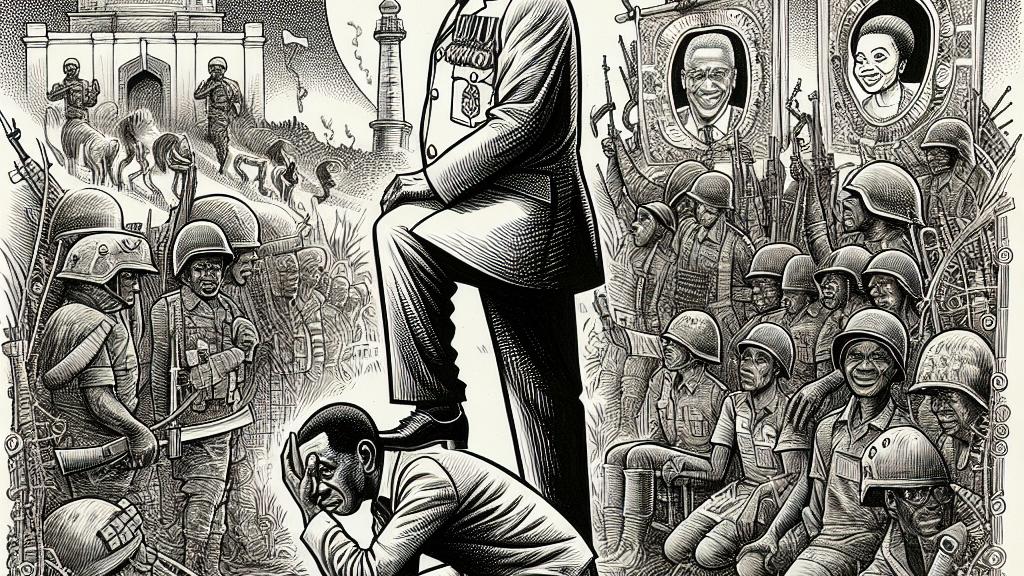Ali Bongo Steps Down from Politics, Urges for Family's Release
Overview
- Ali Bongo's resignation marks a turning point for Gabon after a military coup has reshaped its political landscape.
- In a heartfelt appeal, he urges for the liberation of his wife and son, both entangled in serious corruption allegations.
- As the military promises a return to democratic rule, Gabon's path forward is uncertain yet filled with possibilities.

A Turning Point in Gabonese Politics
In a landmark announcement, Ali Bongo has officially chosen to step away from political life—a move that reverberates across Gabon as the nation embraces change. Once a symbol of power, having succeeded his father after a long rule, Bongo’s departure comes just a year after a military coup thrust him out of office. His reign saw not just milestones, but also immense challenges as corruption and nepotism festered. Now, amidst a backdrop of increased scrutiny and calls for accountability, Bongo’s focus has shifted to the urgent matter of his wife, Sylvia, and son, Noureddin, who are currently detained. He articulates his concerns passionately, claiming that their well-being is critical not only to his personal life but also to the nation’s overall quest for justice and reconciliation.
The Implications of the Military Coup
The military coup that ousted Bongo unfolded rapidly, sparked by widespread frustration with the political status quo that has persisted for more than five decades. Many Gabonese citizens flooded the streets in jubilation, hopeful that they might finally witness a government that prioritizes the needs of its people. As General Brice Oligui Nguema takes charge, promising free elections and a definitive break from the past, the air is thick with anticipation. However, this transition poses a complex array of challenges, not least of which is the necessity to address the Bongo family's alleged corruption thoroughly. The public's demand for accountability echoes loudly, creating a precarious environment where every action taken by the new regime will be scrutinized, and expectations will be high.
A Call for Unity and Healing
Amidst political upheaval, Bongo’s plea for national unity resonates powerfully with many Gabonese. He implores his fellow citizens and future leaders to foster reconciliation, urging them to come together to heal the hurt caused by years of division and turmoil. This aspiration for unity is vital; as Gabon contemplates its future, the importance of overcoming past grievances cannot be overstated. The stakes are high: how the military junta navigates these challenges and responds to public demands will greatly influence whether Gabon emerges as a beacon of democracy or falls back into cycles of discontent. Ultimately, the fate of Bongo's family and the commitment to justice will be telling indicators of the new government's character and aspirations.

Loading...